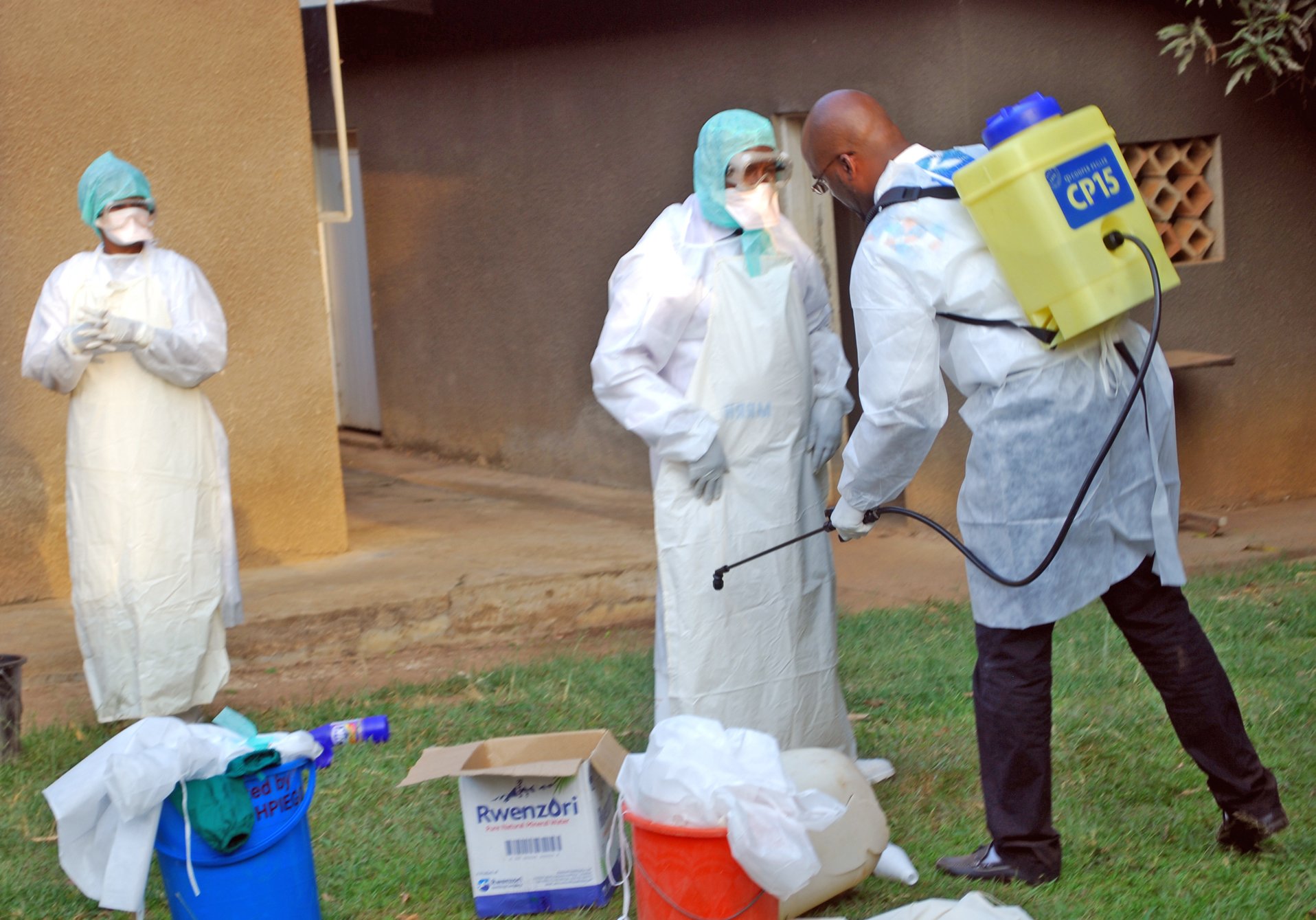"An outbreak of this nature poses a serious financial and human resource challenge. Our resources have been strained since July. We need additional resources to handle the current outbreak. What we have at hand is not enough," Dennis Lwamafa, the acting director-general of health Services at the Ministry of Health, told IRIN.
"With the increasing epidemic outbreaks and their frequencies, we are further constrained... The costs to manage this outbreak cause a distortion... We had not planned for it."
As of 12 November, three people - all members of the same family - were suspected to have died from Ebola in Luwero District, 50km northwest of Kampala. Five people who had close contact with the deceased are also suspected to have contracted the disease; two of these are in an isolation unit at Mulago National Referral Hospital in the capital, Kampala, two in health centres in Luwero and one at Bombo Military Hospital, 30km north of the capital. The Ministry of Health has begun tracing people who may have had contact with the deceased and those infected.
On 15 November, Uganda's Daily Monitor newspaper reported the death of a man who had presented with symptoms characteristic of Ebola at a health centre in the northwestern district of Koboko.
Sudan strain
The outbreak comes less than two months after the country was declared Ebola-free following an outbreak in July that killed 17 people in the western district of Kibaale. The virus in Luwero is the same strain - Ebola Sudan - as the Kibaale outbreak, according to the Uganda Virus Research Institute (UVRI). The Sudan strain was responsible for an outbreak that infected more than 400 and killed some 220 people in Uganda in 2000 and one person in Luwero in May 2011.
The country is also battling an outbreak of Marburg - a viral haemorrhagic fever similar to Ebola - which has killed eight people in the southwest.
| Read more |
"We need more financial resources to put [in place] optimal response plans to contain this highly infectious disease," Lwamafa said. "We need doctors, nurses to manage isolation units, surveillance teams to list, monitor and track the contacts, laboratory technicians to take the specimens for testing, burial, mobilization teams and psychosocial support teams to handle trauma."
The UN World Health Organization (WHO) in Uganda has dispatched a team of experts to Luwero to help in surveillance, case management, health education, epidemiology, laboratory, infection control and psychosocial services, according to Miriam Nanyunja, WHO's adviser on disease prevention and control.
"The response is being mounted to effectively contain the outbreak," she told IRIN.
Christine Ondoa, Uganda's minister of health, has appealed to the public to remain calm, take precautions to prevent contracting the virus and avoid public gatherings in the affected district.
so/kr/cb
This article was produced by IRIN News while it was part of the United Nations Office for the Coordination of Humanitarian Affairs. Please send queries on copyright or liability to the UN. For more information: https://shop.un.org/rights-permissions





